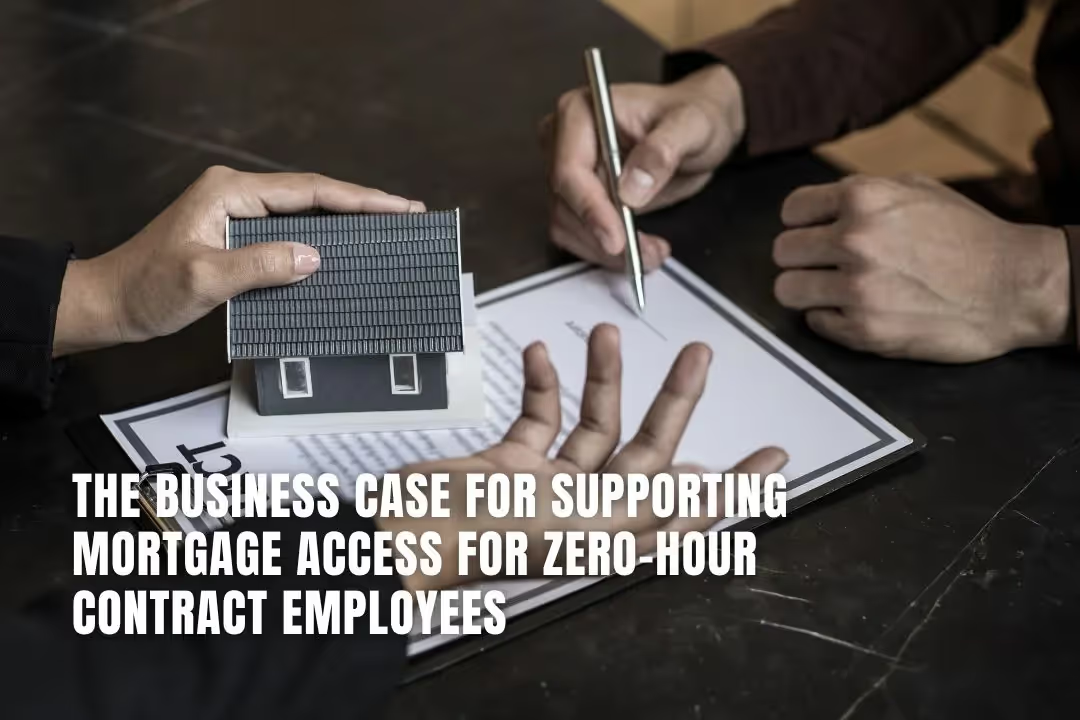
Access to mortgage financing is a critical pathway to achieving the dream of homeownership. For those on zero-hour contracts, however, this pathway often feels less like a road and more like a barrier. Traditional lending criteria can be rigid, leaving those with unconventional employment, like zero-hour contract workers, facing uncertainty when it comes to securing a mortgage. Yet, there's an untapped market here, and addressing their mortgage access could benefit both lenders and borrowers alike.
Financial inclusion is essential for a balanced and fair economy. As a zero-hour employee, your work hours may fluctuate, and thus, your income does too, which could make some lenders hesitate. Yet, embracing the diversity of modern employment forms can open doors to new customer bases for forward-thinking lenders. There's a growing business case for financial institutions to adapt their mortgage products to suit the varying needs of today's workforce, which includes you and your peers on zero-hour contracts.
In a climate where the stability of full-time employment is no longer the sole norm, the financial industry needs to keep pace with the changing nature of work. Your economic contributions as a zero-hour contract employee are valuable, and recognising this value is crucial. Providing mortgage access isn't just about fairness; it's also about harnessing the potential of a broader range of customers. After all, fostering financial inclusion isn't just good ethics—it's good business too.
Before diving into the intricacies of zero-hour contracts, it's important for you to grasp their flexibility, which has a significant impact on workers and the labour market.
A zero-hour contract is a type of employment agreement where you are not guaranteed any set number of hours each week. Employers offer work when it's available, and while you can accept or decline these hours, there's no obligation for employers to provide a minimum. In terms of prevalence, these contracts are quite common in the hospitality and retail sectors, catering to businesses with fluctuating demands.
Zero-hour contracts carry a mix of advantages and disadvantages which directly affect you and can shape your work-life balance.
Pros:
Cons:
The legal landscape surrounding zero-hour contracts can be complex, with regulations varying by country and sometimes even by region within a country.
Legislation in this area tends to evolve, aiming to protect workers like you while enabling business flexibility.
Navigating the approval process can be daunting, especially for a mortgage on a zero-hour contract. The lack of fixed hours poses unique hurdles when it comes to income verification, credit assessment, and satisfying traditional lending criteria.
As a zero-hour contract employee, your variable income requires thorough documentation to assure lenders of your ability to meet monthly payments. Lenders typically look for consistent income streams, and your fluctuating income might necessitate additional paperwork or evaluation. It's crucial for you to maintain detailed records of your work hours and earnings. Providing tax returns, bank statements, and pay stubs might help to create a clearer financial picture for lenders.
Your credit history is a snapshot of your financial reliability. Lenders scrutinise your past credit behaviour to predict future performance. Ensure your credit history is accurate and up-to-date, checking for any errors that could adversely affect your mortgage application. If you've effectively managed credit in the past, despite an irregular income, it highlights your financial resilience.
Mortgage lenders apply specific criteria to assess risk and determine eligibility. Traditional lenders might have stringent rules that do not account for the unique situations of zero-hour contracts. However, exploring mortgage options tailored to flexible employment models can strengthen your position. Understanding and matching the lenders' criteria is key, so research carefully and consider seeking advice from specialists in zero-hour contract mortgages for tailored assistance.
Embracing a diverse range of customers, including those on zero-hour contracts, is not just a nice-to-have—it's a strategic move. By broadening mortgage access, businesses tap into new markets and spark positive change.
Your potential to grow your customer base lies in recognising the needs of zero-hour contract employees. These individuals are a growing segment of the workforce, and they seek financial products tailored to their unique employment situations. Catering to this demand not only fulfils a societal need but also positions your company to capitalise on an untapped market.
By integrating inclusivity into your business model, you signal to the market that you're a forward-thinking and adaptable company. This can translate into a stronger brand image and increased customer loyalty. Competitors may soon follow suit, but your early adopter status will give you a vital head-start in securing the trust of these underserved potential clients.
Your commitment to inclusivity reflects positively on your corporate identity and can enhance your reputation as a socially responsible business. By supporting zero-hour contract employees, you demonstrate your dedication to equal opportunities in homeownership, aligning with broader social values and attracting customers who share these principles.
Whether borrower or lender, mortgages on a zero-hour contract present unique challenges. As a borrower, you are compelled to provide a stable picture of your income and financial history to a potential mortgage lender. The burden lies with you to show that you are a good risk. As a lender, while seemingly more risky, zero-hour contract borrowers are not all stereotypically bad risks. Those who choose to work on a zero-hour contract do so for the many benefits that such a work agreement affords. It doesn't mean that their finances are unstable or that they are a bad risk to lend to. By extending your funds to zero-hour contract workers, you set your institution apart and show that you are not a cookie-cutter lender, and open up your customer base to a much larger borrower audience.